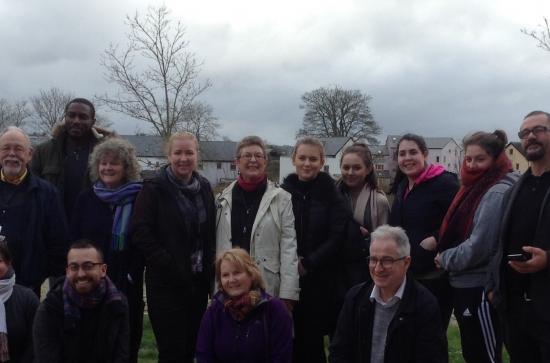
The visit provided an opportunity to see, first-hand, and hear from leading members of the eco-village community, about this pioneering experiment in sustainable and low-carbon living. The project, established in the teeth of the financial crisis, still faces many challenges, but provides inspiration and is an exciting focus for studying innovative ways of adapting to the major environmental challenges facing societies today. The village is more than a technical series of experiments, and there is a strong focus on community building and the development of resilience.
Participants visited the distribution store for the food system, involving a cooperative arrangement for the weekly provision of fresh vegetables produced on the eco-villager's own farm. As we listened to a resident describing the system, we witnessed village residents coming and going, bringing fresh produce home from the store. No money changed hands, as instead users join a club and contribute monthly towards the costs of running the farm.
The visiting group were shown the efficient district heating system, a wood burner currently using wood chip waste from a local sawmill, now serving some 50 houses, with the potential to serve a further 70. The project has faced many challenges, including the loss of many newly planted ash trees hit by disease and setbacks in the deployment of solar powered water heating.
The visiting group met their own travel and subsistence and many stayed in the on-site self-catering hostel whilst the University covered the tuition and facilities costs.
